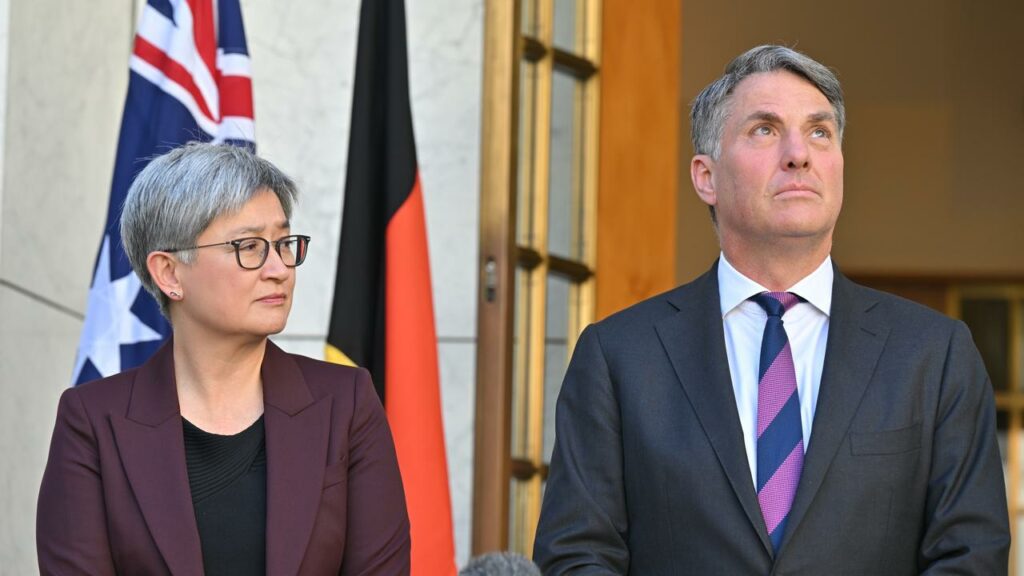Australia-US talks as AUKUS rankles Labor rank and file
Tess Ikonomou |

Labor members have called on the Albanese government to withdraw from the AUKUS partnership, ahead of high-level talks between Australian and US ministers.
In a joint statement on Wednesday, Defence Minister Richard Marles and Foreign Minister Penny Wong confirmed they will meet with Secretary of State Antony Blinken and Secretary of Defence Lloyd Austin in Brisbane next week.
On the agenda for the AUSMIN meeting will be deepening collaboration on defence and security, climate, clean energy and economic issues.
The meeting comes as grassroots Labor members in Environment Minister Tanya Plibersek’s Sydney seat voted on Tuesday night to oppose AUKUS.
They want the government to withdraw from the security pact, and stop the pursuit of acquiring nuclear-powered submarines.
They argue AUKUS fuels a regional arms race, might drag Australia into a devastating war, and undermines the government’s credibility as a signatory of the nuclear non-proliferation treaty.
The members claim the submarines, which are slated to cost $368 billion over three decades, do not align with the values of Labor and the trade union movement which prioritise education, health, aged care and housing.
Earlier this year, a Labor branch in Prime Minister Anthony Albanese’s seat of Grayndler passed a resolution against AUKUS, branding the decision “an obscene waste of money”.
A branch in Port Kembla also passed a resolution against the hosting of nuclear vessels in the Illawarra region on the NSW coast.
A number of unions have also come out against the deal.
Following the ministerial meeting, the defence minister and Mr Austin will travel to north Queensland to visit Australian and US military personnel taking part in Exercise Talisman Sabre.
Mr Marles said Australia’s defence co-operation with the US is “unprecedented in scale, scope and significance”.
“Australia will continue to work with our partners, including the United States, to build a region that is peaceful, stable and prosperous, including through the longstanding US Force Posture Initiatives in Australia,” he said.
Senator Wong said the two governments were broadening the talks to include emerging technologies, the clean energy transition and the role of critical minerals.
“Australia and the United States want to better support our partners in the region, and to promote peace, protect sovereignty and foster prosperity,” Senator Wong said.
Mr Austin will also be the first US defence secretary to visit Papua New Guinea.
The visit will form part of Mr Austin’s eighth trip to the Indo-Pacific region, where he will meet with PNG prime minister James Marape among other senior government and military officials.
AAP